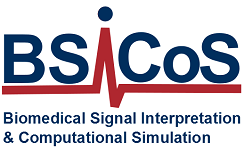-
Projects
Improved monitoring of the autonomic nervous system during daily life applied to stress, depression and exercise
Start date
2018
End date
2018
Coordinator
Eduardo Gil
Funding agency
Universidad de Zaragoza
UZ2018-TEC-05
Major depressive disorder affects 7% of adult population in Europe every year. Depression is associated with increased risk of cardiovascular morbidity and mortality, and it is a major cause of disability and loss of quality of life. Depression represents high costs for the Health System, including direct (medical treatment, care and rehabilitation) and indirect (work disability and loss of productivity) nature.
One of the main challenges in depression remains the monitoring of disease evolution, which is of paramount importance in recurrent and treatment-resistant depression. There is the need for an objective measure which can be used for monitoring depression evolution, to evaluate response to treatment and to prevent relapses. Moreover, this measure should be noninvasively obtained, without interfering with normal life and at a low cost, so it could be used for massive screening of vulnerable population. This tool would be of interest not only for clinical purposes but also for reducing the cost of the health system and for the commercial point of view of companies in the field of health monitoring.
In this project, new signal processing tools will be developed, contributing to the improvement of physiological understanding and ambulatory monitoring of depression. Based on Autonomic Nervous System (ANS) evaluation through non-invasively and suited for daily life monitoring signals, new signal processing methods will be developed and validated in order to find new markers for depression monitoring and tackle the main limitations of current systems. In addition, setting up, testing, and improvement of hardware devices will be performed for these specific purposes.
One hypothesis of this project is that a multimodal approach, which combines information from different physiological signals will improve the characterization of ANS and provide new indices which capture the altered ANS regulation in patients with depression. In this project, new markers of ANS will be derived from the joint analysis of: i) heart rate variability (HRV), derived either from the electrocardiogram or the pulse photoplethismographic (PPG) signal, ii) respiration, to improve parasympathetic system characterization, and iii) electrodermal activity (EDA), to improve sympathetic system characterization. Novel techniques will be developed for the analysis of PPG signal and pulse wave velocity.
The other main objective of the project is to propose, set-up and validate systems for the daily-life monitoring of ANS in patients with depression. To this end, we will develop and validate signal processing tools for assessing signal quality and reducing movement artifacts in signals recorded during daily-life. Then, two pilot studies will be conducted. The first one aims at monitoring ANS in patients with depression using just a smartphone. The second one aims at measuring pulse transit time difference, as a surrogate of pulse wave velocity, using a prototype of an ambulatory system.
The project is expected to make major scientific contributions to depression monitoring, to the characterization and interpretation of ANS from the joint analysis of physiological signals, and to daily-life ANS monitoring.
This project relies on a multidisciplinary and international team, including members from national and international hospitals and universities, with proven expertise in their fields. Companies and hospitals in different countries have expressed interest in the project.
